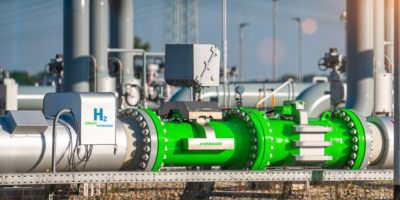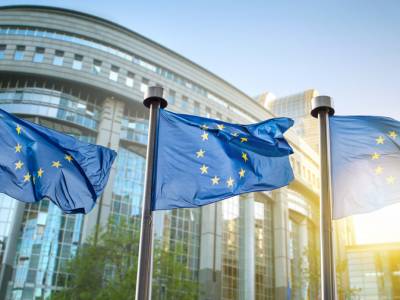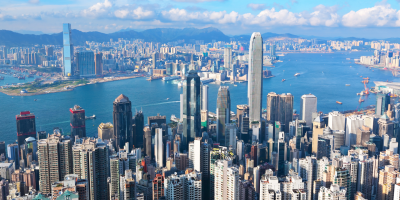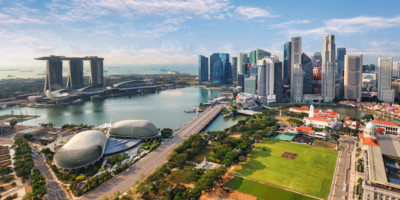-
Vietnam
Vietnam | New Decree on Internet Services and Online Information
9 Dezember 2024
- Auslandsinvestitionen
- Informationstechnologie
- Privatsphäre - Datenschutz
The Government of Vietnam has issued a new decree governing internet services and online information, which shall come into force on 25 December 2024. Decree No. 147/2024/ND-CP, promulgated on 9 November 2024, supersedes the previous Decree No. 72/2013/ND-CP and its amendments.
This comprehensive legislation, comprising over 200 pages and 62 appended forms, addresses a wide array of internet and online topics. These include inter alia, internet services, domain names, cross-border information provision, social network services, aggregated information websites, online game services, and app store services.
Key Provisions
Cross-Border Information Provision
Offshore service providers, including those offering social network and app store services on a cross-border basis, are subject to stricter requirements if they either lease data storage in Vietnam or meet a threshold of 100,000 or more total visits per month from Vietnam for six consecutive months. These providers must:
- Notify the Authority of Broadcasting and Electronic Information (ABEI) of their contact information
- Monitor and remove illegal content
- Store and manage user data as required
- Authenticate social network user accounts using Vietnamese mobile numbers or identification numbers
- Submit annual and ad hoc reports to the ABEI
- Handle user complaints
Only cross-border providers who have notified the ABEI of their contact details may offer live stream and revenue-generating services. Non-compliance may result in blocks and penalties.
Social Networks
Decree 147 establishes distinct regimes for offshore and onshore social network services:
- Offshore providers meeting the aforementioned threshold must notify the ABEI of their contact information.
- Onshore providers reaching 10,000 total visits per month for six consecutive months or 1,000 regular users per month must obtain a Social Network Licence.
- Other onshore providers with low traffic must obtain a Notification Certificate from the ABEI.
The decree also regulates livestream activities by stipulating conditions for social network service providers to offer livestream functions and for social network accounts to conduct livestream activities.
Online Games
Foreign organisations and individuals are prohibited from providing online games to service users in Vietnam on a cross-border basis. To offer such services, they must establish a local enterprise in Vietnam.
This new decree is expected to have a significant impact on both onshore and offshore service providers in the respective fields and may tighten the regulatory landscape for internet services and online information provision in Vietnam.
“This agreement is not just an economic opportunity. It is a political necessity.” In the current geopolitical context of growing protectionism and significant regional conflicts, Ursula von der Leyen’s statement says a lot.
Even though there is still a long way to go before the agreement is approved internally in each bloc and comes into force, the milestone is highly significant. It took 25 years from the start of negotiations between Mercosur and the European Union to reach a consensus text. The impacts will be considerable. Together, the blocs represent a GDP of over 22 trillion dollars, and are home to over 700 million people.
Our aim here is to highlight, in a simplified manner, the most important information about the agreement’s content and its progress, which we will update here at each stage.
What is it?
The agreement was signed as a trade treaty, with the main goal of reducing import and export tariffs, eliminating bureaucratic barriers, and facilitating trade between Mercosur countries and European Union members. Additionally, the pact includes commitments in areas such as sustainability, labor rights, technological cooperation, and environmental protection.
Mercosur (Southern Common Market) is an economic bloc created in 1991 by Brazil, Argentina, Paraguay, and Uruguay. Now, Bolivia and Chile participate as associated members, accessing some trade agreements, but not fully integrated into the common market. On the other hand, the European Union, with its 27 members (20 of which have adopted the common currency), is a broader union with greater economic and social integration compared to Mercosur.
What does the EU Mercosur agreement include?
Trade in goods:
- Reduction or elimination of tariffs on products traded between the blocs, such as meat, grains, fruits, automobiles, wines, and dairy products (the expected reduction will affect over 90% of the traded goods between the blocks).
- Easier access to European high-tech and industrialized products.
Trade in services:
- Expands access to financial services, telecommunications, transportation, and consulting for businesses in both blocs.
Movement of people:
- Provides facilities for temporary visas for qualified workers, such as technology professionals and engineers, promoting talent exchange.
- Encourages educational and cultural cooperation programs.
Sustainability and environment:
- Includes commitments to combat deforestation and meet the goals of the Paris Agreement on climate change.
- Provides penalties for violations of environmental standards.
Intellectual property and regulations:
- Protects geographical indications for European cheese, wines, and South American coffee and cachaça.
- Harmonizes regulatory standards to reduce bureaucracy and avoid technical barriers.
Labor rights:
- Commitment to decent working conditions and compliance with International Labor Organization (ILO) standards.
Which benefits to expect?
- Access to new markets: Mercosur companies will have easier access to the European market, which has more than 450 million consumers, while European products will become more competitive in South America.
- Costs reduction: The elimination or reduction of tariffs could lower the prices of products such as wines, cheese, and automobiles and boost South American exports of meat, grains, and fruits.
- Strengthened diplomatic relations: The agreement symbolizes a bridge of cooperation between two regions historically connected by cultural and economic ties.
What’s next?
The signing is only the first step. For the agreement to come into force, it must be ratified by both blocs, and the approval process is quite distinct between them, since Mercosur does not have a common Council or Parliament.
In the European Union, the ratification process involves multiple institutional steps:
- Council of the European Union: Ministers from the member states will discuss and approve the text of the agreement. This step is crucial, as each country has representation and may raise specific national concerns.
- European Parliament: After approval by the Council, the European Parliament, composed of elected deputies, votes to ratify the agreement. The debate at this stage may include environmental, social, and economic impacts.
- National Parliaments: In cases where the agreement affects shared competencies between the bloc and member states (such as environmental regulations), it must also be approved by the parliaments of each member country. This can be challenging, given that countries like France and Ireland have already expressed specific concerns about agricultural and environmental issues.
In Mercosur, the approval depends on each member country:
- National Congresses: The agreement text is submitted to the parliaments of Brazil, Argentina, Paraguay, and Uruguay. Each congress evaluates independently, and approval depends on the political majority in each country.
- Political Context: Mercosur countries have diverse political realities. In Brazil, for example, environmental issues can spark heated debates, while in Argentina, the impact on agricultural competitiveness may be the focus of discussion.
- Regional Coordination: Even after national approval, it is necessary to ensure that all Mercosur members ratify the agreement, as the bloc acts as a single negotiating entity.
Stay tuned: you will find the update here as the processes advance.
Vietnam has embraced the global minimum tax (GMT) to harmonize its tax policies with global standards. While this new tax regime is anticipated to have certain adverse effects on foreign direct investment (FDI), the Vietnamese government is devising proactive measures to mitigate these repercussions and maintain the country’s appeal as an investment haven.
Key Ramifications of the GMT for Vietnam
The GMT mandates multinational corporations (MNCs) with consolidated revenue surpassing €750 million to pay a minimum tax rate of 15%, irrespective of the tax rate in the country where they operate. In Vietnam, this translates to the concept of a qualified domestic minimum top-up tax (QDMTT).
The QDMTT places an extra tax burden on foreign-invested enterprises (FIEs) that are part of an MNC, potentially deterring them from investing or expanding in Vietnam. This is particularly concerning for industries that heavily rely on tax incentives to attract FDI.
Vietnam’s Response: Investment Support Fund and Proactive Measures
In response to the anticipated negative impacts of the GMT, the Vietnamese government has established an investment support fund (Fund) to incentivize investments in targeted sectors. The Fund is primarily funded by proceeds from the State Budget generated by the GMT.
Eligible enterprises for the Fund are those engaged in high-tech product manufacturing, high-tech enterprises, high-tech application projects, and enterprises with investment projects in research and development centers. Eligibility is based on capital size, annual revenue, industry, or technology utilized.
Eligible taxpayers can receive cash subsidies for five specific expense categories:
- Human resource training and development
- Research and development expenses
- Fixed asset investments
- High-tech manufacturing expenses
- Social infrastructure systems
To qualify for Fund benefits, eligible taxpayers must submit an application dossier to the Fund Office in Hanoi between August 15th and 30th of the year following the incurred Supported Expenses. Each Supported Expense category will have a distinct reimbursement ratio, and support payments will be contingent on the actual expenses incurred by eligible taxpayers.
In addition to the Fund, the Vietnamese government is also implementing proactive measures to address the concerns of foreign investors. These measures include:
- Focusing on targeted industries with high growth potential that align with Vietnam’s strategic development goals
- Utilizing the additional revenue collected from top-up tax to enhance infrastructure and labor quality
- Considering cash grants for long-term qualified investments in high-tech industries
Conclusion
The introduction of the GMT poses challenges for Vietnam in attracting FDI. However, the government’s establishment of the investment support fund and proactive measures demonstrates its commitment to safeguarding the country’s competitiveness as an investment destination. By combining targeted support with infrastructure improvements and incentives for specific industries, Vietnam can mitigate the negative impacts of the GMT and continue to attract foreign investors.
Summary
Egypt aims to be Africa’s first green hydrogen producer by incentivizing companies to invest in the sector. Collaborative efforts with Germany and European companies are underway to enhance hydrogen projects and transport. Incentives include financial subsidies, tax exemptions, and administrative advantages, contingent on project conditions like commissioning, foreign funding, local materials use, and community development.
What is the status of green energy in Egypt and what role does green hydrogen play in this?
It is currently estimated that Egypt has the potential to generate 350 GW of wind energy and about 650 GW of solar energy per year, as per the Minister of Electricity and Renewable Energy’s (Mohamed Shaker El-Marqabi) declaration. As part of its National Climate Strategy 2050, Egypt has set itself the goal of reducing its carbon emissions, promoting the use of renewable energy sources and using alternative forms of energy, including green hydrogen. The importance the Egyptian government attaches to green hydrogen is evident, not least with the recent cabinet meeting on 17th of May 2023.
With a view to becoming the first African country to produce green hydrogen, new incentives for green hydrogen and derivatives projects were presented at the cabinet meeting. Based on an investment of 13 billion USD, the legal and financial benefits (new incentive package) that companies in this field can benefit from in the future were presented.
What agreements exist between Egypt and third countries to promote green hydrogen?
Agreement between Egypt and Germany on green hydrogen
The new incentive package was preceded by a meeting between the German-Egyptian Partnership for Green Hydrogen Projects committee and Egyptian officials on the 14th of March 2023. This resulted in a joint roadmap for supporting hydrogen production companies and promoting hydrogen transport and marketing. At this meeting, it was decided that the parties, the Egyptian Minister of International Cooperation (Rania Al-Mashat) and the Egyptian Minister of Public Enterprises (Mahmoud Esmat), will establish a platform to promote the use of green hydrogen.
At the above-mentioned meeting, Egypt and Germany signed two Memoranda of Understanding (MoU) to enhance cooperation in the field of green hydrogen.
The Egyptian Government also recently signed other MoUs with seven European leading companies and global alliances to produce new and renewable energy, to establish green hydrogen production complexes in Ain Al-Sokhna and the Red Sea Governorate.
The German-Egyptian cooperation in the field of green hydrogen follows Egypt’s goal to establish itself as a hub for producing green hydrogen.
Agreement between Egypt and third countries on green hydrogen
Egypt has also partnered with the European Union to advance green hydrogen production. Furthermore, in 2022, on the occasion of COP27, Egypt signed a series of MoUs with several international organisations to engage foreign investment in green hydrogen production and make Egypt a transit route for clean energy to Europe.
MoUs with global companies and alliances have defined the Red Sea Governorate as the location where green hydrogen projects will be carried out in the future.
Are there investment incentives for the production of green hydrogen in Egypt?
In the cabinet meeting of 17th of May 2023, the Egyptian Prime Minister Mustafa Madbuli stated that Egypt was offering the „largest“ package of investment incentives and facilitations to companies wishing to invest in green hydrogen production projects in Egypt. He further announced the formation of a working group composed of representatives of the authorities involved to elaborate these investment incentives.
The statement indicated that companies involved in green energy projects in Egypt will benefit from incentives set out in the Law drafted in the cabinet meeting of 17th of May 2023 and Investment Law No. 72 of 2017. This targets companies involved in the „production, storage and export of green hydrogen“.
What investment incentives for the production of green hydrogen in Egypt are provided for in the draft Law of 17th of May 2023?
Financial incentives
Investments in the green hydrogen sector are subsidised in the amount of 33 % to 55 % of the income tax payable. The Ministry of Finance pays the subsidy within 45 days after the deadline for filing the tax return. The subsidy itself is not taxable. The exact conditions for the payment of the subsidy are still to be determined by the Cabinet.
All machinery, equipment, materials, consumables and vehicles (except private vehicles) used in green hydrogen and derivative projects are exempt from VAT.
No VAT is levied on exports of green hydrogen and its derivatives.
The Ministry of Finance pays most of the duties and certification costs associated with setting up the business and all import duties on imported goods used by the establishment. Further, it pays the taxes that would have been levied on the real estate used for the activity, if any.
Administrative incentives
Projects in the field of green hydrogen or its derivatives benefit from the so-called golden licence, as it is called in the Investment Law No. 72 of 2017.
All raw materials, spare parts and vehicles required for operations can be freely imported or exported directly or through distributors without the need for registration in the Importers‘ Register.
The incentives apply to projects and their extensions throughout the contract period if the project agreements are concluded within a maximum of 7 years from the date of commercial commissioning.
Requirements
The investment incentives apply when:
- the project is commissioned within 5 years of the signing of the project agreement
- at least 70 % of the investment costs come from foreign funds
- at least 20 % of the locally used materials originate from Egypt
- training programmes are set up for local workers and know-how is shared
- the project company draws up a development plan for the communities in which it will operate
What investment incentives for the production of green hydrogen in Egypt are provided for in the Investment Law No. 72 of 2017?
The tax incentives granted under the Investment Law No. 72 of 2017 provide for special, general and additional incentives.
Special incentives
These are tax reductions limited to 7 years for projects that are started within 3 years (extendable to 6 years) after the provisions of the Law No. 72 of 2017 came into force (i.e. by October 2023). The investment costs consist of equity capital, long-term loans to finance the construction of the project’s movable and immovable assets, and working capital. The tax base is the taxable net profit, which is taxed at the following rates:
1) Tax exemption on 50 % of the investment costs for the implementation of a project in geographical locations with the greatest development needs (underdeveloped locations) designated by the Central Agency for Public Mobilization and Statistics (CAPMS)
The law identifies these sites as “Zone A”. According to the implementing regulations, “Zone A” includes:
- the Suez Canal Economic Zone
- the Golden Triangle Special Economic Zone
- the New Administrative Capital Zone
- the south of Giza province
- the provinces of Port Said, Ismailia and Suez (east of the canal) connected to the Suez Canal.
- border provinces, including Red Sea province south of Safaga
- the provinces in upper Egypt
- other areas in greatest need of development (to be determined by the Prime Minister)
2) Tax exemption on 30 % of the investment costs of a project located in the remaining geographical areas outside “Zone A”, referred to as “Zone B”, and operating in certain sectors.
This includes projects that:
- are active in the field of renewable energies
- export their products outside Egypt
- be carried out by a small or medium-sized (SME)
General incentives
Parallel to the special investment incentives, general investment incentives also apply. For example, projects are exempt from certain administrative requirements and fees for a period of 5 years from the date of their registration in the commercial register. Furthermore, temporary duty-free imports and exports are possible.
Additional incentives
Additional investment incentives may also be granted by decision of the Council of Ministers:
- special customs offices for the export or import of the investment project
- bearing of the value of the utility supply (such as electricity and water supply) of the property intended for the investment project or part thereof by the State
- partial bearing of the costs of a technical training programme for employees by the State
- reimbursement of half of the value of the land allocated for industrial projects, provided that the activity was started within two years of the transfer of the land
- free allocation of land for certain strategic activities
- under certain conditions, granting of a general permit for the construction, operation and management of the project as well as for the provision of the land required for this purpose. This permit shall also be deemed to be a building permit and shall be effective in its own right without any further action being required. In December 2022, the Egyptian Cabinet granted general approval for several projects.
- incorporation shares of capital companies subject to the Investment Law No. 72 of 2017 may be traded during the first two fiscal years of the company, subject to the approval of the competent Minister
- simplified acquisition of real estate, provided it is used for the project
Takeaways
- Egypt’s Green Hydrogen Drive: Egypt is strategically embracing green hydrogen production as a pivotal element of its renewable energy vision. The country’s ambitious goals and extensive incentives underscore its commitment to becoming a leading player in the global green energy landscape.
- International Collaborations: Collaborations with Germany and European partners highlight Egypt’s proactive approach to international cooperation in advancing green hydrogen technologies. Memoranda of Understanding and joint roadmaps are facilitating knowledge exchange and investments for robust hydrogen projects.
- Comprehensive Incentive Framework: Egypt’s multifaceted incentive framework, including financial subsidies, tax exemptions, and administrative benefits, showcases the government’s determination to attract investments in green hydrogen production. Stringent conditions for benefiting from these incentives emphasize the nation’s dedication to sustainable practices and local community development.
Scrivi a Federico
The Milestone EU-Mercosur Trade Deal
9 Dezember 2024
-
Argentinien
-
Brasilien
-
Italien
-
Uruguay
- Vertrieb
- Auslandsinvestitionen
- Steuer
The Government of Vietnam has issued a new decree governing internet services and online information, which shall come into force on 25 December 2024. Decree No. 147/2024/ND-CP, promulgated on 9 November 2024, supersedes the previous Decree No. 72/2013/ND-CP and its amendments.
This comprehensive legislation, comprising over 200 pages and 62 appended forms, addresses a wide array of internet and online topics. These include inter alia, internet services, domain names, cross-border information provision, social network services, aggregated information websites, online game services, and app store services.
Key Provisions
Cross-Border Information Provision
Offshore service providers, including those offering social network and app store services on a cross-border basis, are subject to stricter requirements if they either lease data storage in Vietnam or meet a threshold of 100,000 or more total visits per month from Vietnam for six consecutive months. These providers must:
- Notify the Authority of Broadcasting and Electronic Information (ABEI) of their contact information
- Monitor and remove illegal content
- Store and manage user data as required
- Authenticate social network user accounts using Vietnamese mobile numbers or identification numbers
- Submit annual and ad hoc reports to the ABEI
- Handle user complaints
Only cross-border providers who have notified the ABEI of their contact details may offer live stream and revenue-generating services. Non-compliance may result in blocks and penalties.
Social Networks
Decree 147 establishes distinct regimes for offshore and onshore social network services:
- Offshore providers meeting the aforementioned threshold must notify the ABEI of their contact information.
- Onshore providers reaching 10,000 total visits per month for six consecutive months or 1,000 regular users per month must obtain a Social Network Licence.
- Other onshore providers with low traffic must obtain a Notification Certificate from the ABEI.
The decree also regulates livestream activities by stipulating conditions for social network service providers to offer livestream functions and for social network accounts to conduct livestream activities.
Online Games
Foreign organisations and individuals are prohibited from providing online games to service users in Vietnam on a cross-border basis. To offer such services, they must establish a local enterprise in Vietnam.
This new decree is expected to have a significant impact on both onshore and offshore service providers in the respective fields and may tighten the regulatory landscape for internet services and online information provision in Vietnam.
“This agreement is not just an economic opportunity. It is a political necessity.” In the current geopolitical context of growing protectionism and significant regional conflicts, Ursula von der Leyen’s statement says a lot.
Even though there is still a long way to go before the agreement is approved internally in each bloc and comes into force, the milestone is highly significant. It took 25 years from the start of negotiations between Mercosur and the European Union to reach a consensus text. The impacts will be considerable. Together, the blocs represent a GDP of over 22 trillion dollars, and are home to over 700 million people.
Our aim here is to highlight, in a simplified manner, the most important information about the agreement’s content and its progress, which we will update here at each stage.
What is it?
The agreement was signed as a trade treaty, with the main goal of reducing import and export tariffs, eliminating bureaucratic barriers, and facilitating trade between Mercosur countries and European Union members. Additionally, the pact includes commitments in areas such as sustainability, labor rights, technological cooperation, and environmental protection.
Mercosur (Southern Common Market) is an economic bloc created in 1991 by Brazil, Argentina, Paraguay, and Uruguay. Now, Bolivia and Chile participate as associated members, accessing some trade agreements, but not fully integrated into the common market. On the other hand, the European Union, with its 27 members (20 of which have adopted the common currency), is a broader union with greater economic and social integration compared to Mercosur.
What does the EU Mercosur agreement include?
Trade in goods:
- Reduction or elimination of tariffs on products traded between the blocs, such as meat, grains, fruits, automobiles, wines, and dairy products (the expected reduction will affect over 90% of the traded goods between the blocks).
- Easier access to European high-tech and industrialized products.
Trade in services:
- Expands access to financial services, telecommunications, transportation, and consulting for businesses in both blocs.
Movement of people:
- Provides facilities for temporary visas for qualified workers, such as technology professionals and engineers, promoting talent exchange.
- Encourages educational and cultural cooperation programs.
Sustainability and environment:
- Includes commitments to combat deforestation and meet the goals of the Paris Agreement on climate change.
- Provides penalties for violations of environmental standards.
Intellectual property and regulations:
- Protects geographical indications for European cheese, wines, and South American coffee and cachaça.
- Harmonizes regulatory standards to reduce bureaucracy and avoid technical barriers.
Labor rights:
- Commitment to decent working conditions and compliance with International Labor Organization (ILO) standards.
Which benefits to expect?
- Access to new markets: Mercosur companies will have easier access to the European market, which has more than 450 million consumers, while European products will become more competitive in South America.
- Costs reduction: The elimination or reduction of tariffs could lower the prices of products such as wines, cheese, and automobiles and boost South American exports of meat, grains, and fruits.
- Strengthened diplomatic relations: The agreement symbolizes a bridge of cooperation between two regions historically connected by cultural and economic ties.
What’s next?
The signing is only the first step. For the agreement to come into force, it must be ratified by both blocs, and the approval process is quite distinct between them, since Mercosur does not have a common Council or Parliament.
In the European Union, the ratification process involves multiple institutional steps:
- Council of the European Union: Ministers from the member states will discuss and approve the text of the agreement. This step is crucial, as each country has representation and may raise specific national concerns.
- European Parliament: After approval by the Council, the European Parliament, composed of elected deputies, votes to ratify the agreement. The debate at this stage may include environmental, social, and economic impacts.
- National Parliaments: In cases where the agreement affects shared competencies between the bloc and member states (such as environmental regulations), it must also be approved by the parliaments of each member country. This can be challenging, given that countries like France and Ireland have already expressed specific concerns about agricultural and environmental issues.
In Mercosur, the approval depends on each member country:
- National Congresses: The agreement text is submitted to the parliaments of Brazil, Argentina, Paraguay, and Uruguay. Each congress evaluates independently, and approval depends on the political majority in each country.
- Political Context: Mercosur countries have diverse political realities. In Brazil, for example, environmental issues can spark heated debates, while in Argentina, the impact on agricultural competitiveness may be the focus of discussion.
- Regional Coordination: Even after national approval, it is necessary to ensure that all Mercosur members ratify the agreement, as the bloc acts as a single negotiating entity.
Stay tuned: you will find the update here as the processes advance.
Vietnam has embraced the global minimum tax (GMT) to harmonize its tax policies with global standards. While this new tax regime is anticipated to have certain adverse effects on foreign direct investment (FDI), the Vietnamese government is devising proactive measures to mitigate these repercussions and maintain the country’s appeal as an investment haven.
Key Ramifications of the GMT for Vietnam
The GMT mandates multinational corporations (MNCs) with consolidated revenue surpassing €750 million to pay a minimum tax rate of 15%, irrespective of the tax rate in the country where they operate. In Vietnam, this translates to the concept of a qualified domestic minimum top-up tax (QDMTT).
The QDMTT places an extra tax burden on foreign-invested enterprises (FIEs) that are part of an MNC, potentially deterring them from investing or expanding in Vietnam. This is particularly concerning for industries that heavily rely on tax incentives to attract FDI.
Vietnam’s Response: Investment Support Fund and Proactive Measures
In response to the anticipated negative impacts of the GMT, the Vietnamese government has established an investment support fund (Fund) to incentivize investments in targeted sectors. The Fund is primarily funded by proceeds from the State Budget generated by the GMT.
Eligible enterprises for the Fund are those engaged in high-tech product manufacturing, high-tech enterprises, high-tech application projects, and enterprises with investment projects in research and development centers. Eligibility is based on capital size, annual revenue, industry, or technology utilized.
Eligible taxpayers can receive cash subsidies for five specific expense categories:
- Human resource training and development
- Research and development expenses
- Fixed asset investments
- High-tech manufacturing expenses
- Social infrastructure systems
To qualify for Fund benefits, eligible taxpayers must submit an application dossier to the Fund Office in Hanoi between August 15th and 30th of the year following the incurred Supported Expenses. Each Supported Expense category will have a distinct reimbursement ratio, and support payments will be contingent on the actual expenses incurred by eligible taxpayers.
In addition to the Fund, the Vietnamese government is also implementing proactive measures to address the concerns of foreign investors. These measures include:
- Focusing on targeted industries with high growth potential that align with Vietnam’s strategic development goals
- Utilizing the additional revenue collected from top-up tax to enhance infrastructure and labor quality
- Considering cash grants for long-term qualified investments in high-tech industries
Conclusion
The introduction of the GMT poses challenges for Vietnam in attracting FDI. However, the government’s establishment of the investment support fund and proactive measures demonstrates its commitment to safeguarding the country’s competitiveness as an investment destination. By combining targeted support with infrastructure improvements and incentives for specific industries, Vietnam can mitigate the negative impacts of the GMT and continue to attract foreign investors.
Summary
Egypt aims to be Africa’s first green hydrogen producer by incentivizing companies to invest in the sector. Collaborative efforts with Germany and European companies are underway to enhance hydrogen projects and transport. Incentives include financial subsidies, tax exemptions, and administrative advantages, contingent on project conditions like commissioning, foreign funding, local materials use, and community development.
What is the status of green energy in Egypt and what role does green hydrogen play in this?
It is currently estimated that Egypt has the potential to generate 350 GW of wind energy and about 650 GW of solar energy per year, as per the Minister of Electricity and Renewable Energy’s (Mohamed Shaker El-Marqabi) declaration. As part of its National Climate Strategy 2050, Egypt has set itself the goal of reducing its carbon emissions, promoting the use of renewable energy sources and using alternative forms of energy, including green hydrogen. The importance the Egyptian government attaches to green hydrogen is evident, not least with the recent cabinet meeting on 17th of May 2023.
With a view to becoming the first African country to produce green hydrogen, new incentives for green hydrogen and derivatives projects were presented at the cabinet meeting. Based on an investment of 13 billion USD, the legal and financial benefits (new incentive package) that companies in this field can benefit from in the future were presented.
What agreements exist between Egypt and third countries to promote green hydrogen?
Agreement between Egypt and Germany on green hydrogen
The new incentive package was preceded by a meeting between the German-Egyptian Partnership for Green Hydrogen Projects committee and Egyptian officials on the 14th of March 2023. This resulted in a joint roadmap for supporting hydrogen production companies and promoting hydrogen transport and marketing. At this meeting, it was decided that the parties, the Egyptian Minister of International Cooperation (Rania Al-Mashat) and the Egyptian Minister of Public Enterprises (Mahmoud Esmat), will establish a platform to promote the use of green hydrogen.
At the above-mentioned meeting, Egypt and Germany signed two Memoranda of Understanding (MoU) to enhance cooperation in the field of green hydrogen.
The Egyptian Government also recently signed other MoUs with seven European leading companies and global alliances to produce new and renewable energy, to establish green hydrogen production complexes in Ain Al-Sokhna and the Red Sea Governorate.
The German-Egyptian cooperation in the field of green hydrogen follows Egypt’s goal to establish itself as a hub for producing green hydrogen.
Agreement between Egypt and third countries on green hydrogen
Egypt has also partnered with the European Union to advance green hydrogen production. Furthermore, in 2022, on the occasion of COP27, Egypt signed a series of MoUs with several international organisations to engage foreign investment in green hydrogen production and make Egypt a transit route for clean energy to Europe.
MoUs with global companies and alliances have defined the Red Sea Governorate as the location where green hydrogen projects will be carried out in the future.
Are there investment incentives for the production of green hydrogen in Egypt?
In the cabinet meeting of 17th of May 2023, the Egyptian Prime Minister Mustafa Madbuli stated that Egypt was offering the „largest“ package of investment incentives and facilitations to companies wishing to invest in green hydrogen production projects in Egypt. He further announced the formation of a working group composed of representatives of the authorities involved to elaborate these investment incentives.
The statement indicated that companies involved in green energy projects in Egypt will benefit from incentives set out in the Law drafted in the cabinet meeting of 17th of May 2023 and Investment Law No. 72 of 2017. This targets companies involved in the „production, storage and export of green hydrogen“.
What investment incentives for the production of green hydrogen in Egypt are provided for in the draft Law of 17th of May 2023?
Financial incentives
Investments in the green hydrogen sector are subsidised in the amount of 33 % to 55 % of the income tax payable. The Ministry of Finance pays the subsidy within 45 days after the deadline for filing the tax return. The subsidy itself is not taxable. The exact conditions for the payment of the subsidy are still to be determined by the Cabinet.
All machinery, equipment, materials, consumables and vehicles (except private vehicles) used in green hydrogen and derivative projects are exempt from VAT.
No VAT is levied on exports of green hydrogen and its derivatives.
The Ministry of Finance pays most of the duties and certification costs associated with setting up the business and all import duties on imported goods used by the establishment. Further, it pays the taxes that would have been levied on the real estate used for the activity, if any.
Administrative incentives
Projects in the field of green hydrogen or its derivatives benefit from the so-called golden licence, as it is called in the Investment Law No. 72 of 2017.
All raw materials, spare parts and vehicles required for operations can be freely imported or exported directly or through distributors without the need for registration in the Importers‘ Register.
The incentives apply to projects and their extensions throughout the contract period if the project agreements are concluded within a maximum of 7 years from the date of commercial commissioning.
Requirements
The investment incentives apply when:
- the project is commissioned within 5 years of the signing of the project agreement
- at least 70 % of the investment costs come from foreign funds
- at least 20 % of the locally used materials originate from Egypt
- training programmes are set up for local workers and know-how is shared
- the project company draws up a development plan for the communities in which it will operate
What investment incentives for the production of green hydrogen in Egypt are provided for in the Investment Law No. 72 of 2017?
The tax incentives granted under the Investment Law No. 72 of 2017 provide for special, general and additional incentives.
Special incentives
These are tax reductions limited to 7 years for projects that are started within 3 years (extendable to 6 years) after the provisions of the Law No. 72 of 2017 came into force (i.e. by October 2023). The investment costs consist of equity capital, long-term loans to finance the construction of the project’s movable and immovable assets, and working capital. The tax base is the taxable net profit, which is taxed at the following rates:
1) Tax exemption on 50 % of the investment costs for the implementation of a project in geographical locations with the greatest development needs (underdeveloped locations) designated by the Central Agency for Public Mobilization and Statistics (CAPMS)
The law identifies these sites as “Zone A”. According to the implementing regulations, “Zone A” includes:
- the Suez Canal Economic Zone
- the Golden Triangle Special Economic Zone
- the New Administrative Capital Zone
- the south of Giza province
- the provinces of Port Said, Ismailia and Suez (east of the canal) connected to the Suez Canal.
- border provinces, including Red Sea province south of Safaga
- the provinces in upper Egypt
- other areas in greatest need of development (to be determined by the Prime Minister)
2) Tax exemption on 30 % of the investment costs of a project located in the remaining geographical areas outside “Zone A”, referred to as “Zone B”, and operating in certain sectors.
This includes projects that:
- are active in the field of renewable energies
- export their products outside Egypt
- be carried out by a small or medium-sized (SME)
General incentives
Parallel to the special investment incentives, general investment incentives also apply. For example, projects are exempt from certain administrative requirements and fees for a period of 5 years from the date of their registration in the commercial register. Furthermore, temporary duty-free imports and exports are possible.
Additional incentives
Additional investment incentives may also be granted by decision of the Council of Ministers:
- special customs offices for the export or import of the investment project
- bearing of the value of the utility supply (such as electricity and water supply) of the property intended for the investment project or part thereof by the State
- partial bearing of the costs of a technical training programme for employees by the State
- reimbursement of half of the value of the land allocated for industrial projects, provided that the activity was started within two years of the transfer of the land
- free allocation of land for certain strategic activities
- under certain conditions, granting of a general permit for the construction, operation and management of the project as well as for the provision of the land required for this purpose. This permit shall also be deemed to be a building permit and shall be effective in its own right without any further action being required. In December 2022, the Egyptian Cabinet granted general approval for several projects.
- incorporation shares of capital companies subject to the Investment Law No. 72 of 2017 may be traded during the first two fiscal years of the company, subject to the approval of the competent Minister
- simplified acquisition of real estate, provided it is used for the project
Takeaways
- Egypt’s Green Hydrogen Drive: Egypt is strategically embracing green hydrogen production as a pivotal element of its renewable energy vision. The country’s ambitious goals and extensive incentives underscore its commitment to becoming a leading player in the global green energy landscape.
- International Collaborations: Collaborations with Germany and European partners highlight Egypt’s proactive approach to international cooperation in advancing green hydrogen technologies. Memoranda of Understanding and joint roadmaps are facilitating knowledge exchange and investments for robust hydrogen projects.
- Comprehensive Incentive Framework: Egypt’s multifaceted incentive framework, including financial subsidies, tax exemptions, and administrative benefits, showcases the government’s determination to attract investments in green hydrogen production. Stringent conditions for benefiting from these incentives emphasize the nation’s dedication to sustainable practices and local community development.





















